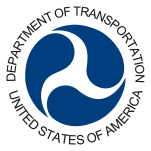Audit Reports
DOT’s Fiscal Year 2015 Improper Payment Reporting Does Not Comply with IPERA Requirements
Summary
In July 2010, President Obama signed the Improper Payments Elimination and Recovery Act (IPERA) to encourage the elimination of payment errors, waste, fraud, and abuse in Federal programs. IPERA requires that Federal agencies limit improper payments to less than 10 percent of their total program payments; test annually for improper payments in their programs and publish the results in their Agency Financial Reports (AFR); comply with the Office of Management and Budget’s implementing regulations; and inspectors general review their agencies’ compliance with IPERA and submit reports to their agency heads. To meet IPERA’s and OMB’s requirements, we reviewed the Department of Transportation’s (DOT) improper payment testing results in the fiscal year 2015 AFR to determine whether (1) DOT complied with IPERA’s requirements as implemented by OMB, (2) the improper payment information in DOT’s AFR was accurate, and (3) DOT met its improper payment reduction targets for fiscal year 2015. DOT contracted with a consulting firm to assist in its implementation of IPERA’s annual estimation requirements.
While DOT’s AFR included all of the required reporting elements, we found errors that constitute noncompliance. For example, FHWA’s Highway Planning and Construction (HPC) program did not achieve its own target to reduce improper payments to 0.25 percent or less for fiscal year 2015 as required by OMB guidelines. DOT officials estimated HPC’s 2015 improper payments were $479.2 million, or 1.08 percent of the total FHWA Federal-aid payment amount. Therefore, the amount of improper payments exceeded FHWA’s target amount ($112.93 million) by $366.27 million and the reduction target (0.25 percent) by 0.83 percent. Additionally, DOT’s future year outlays reported in the Department’s 2015 AFR do not match the future outlays reported in the 2016 President’s Budget estimates as required by OMB. In one instance, the discrepancy exceeded $700 million. Finally, an FHWA employee did not collect adequate documentation to determine the hourly rate paid to a grantee’s employee was correct. Without this documentation, FHWA should not have concluded that a payment of $245.56 was not improper.
DOT officials concurred with our two recommendations. The Agency agreed to provide a detailed response to each recommendation within 30 days of the final report issuance.
